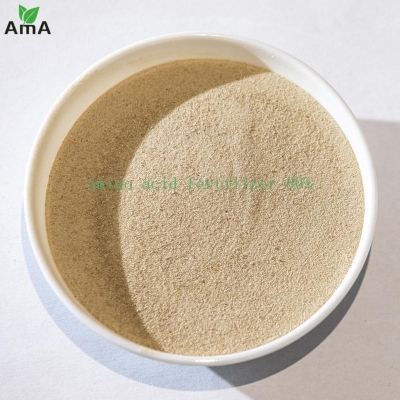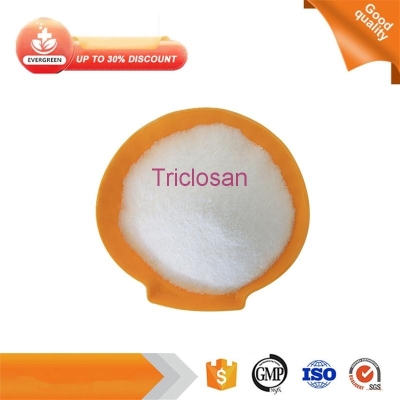-
Categories
-
Pharmaceutical Intermediates
-
Active Pharmaceutical Ingredients
-
Food Additives
- Industrial Coatings
- Agrochemicals
- Dyes and Pigments
- Surfactant
- Flavors and Fragrances
- Chemical Reagents
- Catalyst and Auxiliary
- Natural Products
- Inorganic Chemistry
-
Organic Chemistry
-
Biochemical Engineering
- Analytical Chemistry
- Cosmetic Ingredient
-
Pharmaceutical Intermediates
Promotion
ECHEMI Mall
Wholesale
Weekly Price
Exhibition
News
-
Trade Service
On March 29, 2021, Shanghai Yingli Pharmaceutical Co.
, Ltd.
(abbreviated as Yingli Pharmaceutical) announced its self-developed new drug Linperlisib (YY-20394) for the treatment of relapsed/refractory follicular lymphoma (r/r) FL) Phase 2 registration clinical trials are initially completed
.
The test results show that Linperlisib has achieved statistical and clinical significance improvements in terms of effectiveness and safety for the intention-to-treat population
Linperlisib is an oral PI3Kδ inhibitor developed by Yingli Pharmaceutical
.
Preclinical studies have shown that linperlisib can reduce the phosphorylation level of AKT protein by inhibiting the expression of PI3Kδ protein, thereby inducing cell apoptosis and inhibiting the proliferation of malignant B cells and primary tumor cells
This announcement is a single-arm, open, multi-center phase 2 clinical trial (YY-20394-002), which aims to evaluate the effectiveness and safety of linperlisib in the treatment of patients with relapsed and/or refractory follicular lymphoma.
The main study endpoint is the overall response rate assessed by the Independent Data Evaluation Committee (IRC)
.
In the two-year-long trial, a total of 93 cases of relapsed and/or refractory follicular lymphoma that had progressed after receiving second-line or higher systemic treatment (receiving rituximab and at least one alkylating agent) were included Patient
Phase 2 registration clinical data showed that linperlisib showed significant clinical benefit in subjects with relapsed/refractory follicular lymphoma: Among 89 evaluable patients with relapsed/refractory follicular lymphoma, linperlisib reached It has an objective remission rate of more than 80% and a disease control rate of more than 95%, and oral administration is safe and controllable, and it is well tolerated
.
Linperlisib is currently conducting 10 clinical trials in China and globally
.
In addition to monotherapy studies, Yingli Pharmaceutical is also exploring ways to combine linperlisib with other anti-tumor drugs, such as linperlisib combined with GEMOX for the treatment of patients with relapsed/refractory diffuse large B-cell lymphoma
About PI3K inhibitors
PI3K is called phosphatidylinositol-3-kinase, which was discovered by scientists in the 1980s
.
Because of its important role in the occurrence and progression of cancer, it has become one of the popular targets for researchers to develop cancer-targeted drugs
PI3K is composed of three subunits
.
According to its different structure and specific substrate, PI3K is divided into three categories: Class I, Class II and Class III
PI3K inhibitors approved for marketing worldwide
PI3K mediates almost 50% of malignant tumors
.
The overactivity of its signaling pathway is significantly related to tumor progression, increase in tumor microvessel density, and enhanced chemotaxis and invasiveness of cancer cells
(According to public information)
Domestic PI3K inhibitor R&D layout
In China, no PI3K inhibitor has been approved for listing, but companies have actively engaged in research and development in this field through external introduction and independent research and development, and more than a dozen PI3K inhibitors have entered the clinical stage
.
(According to public information)
It is worth mentioning that on March 31, 2021, Cinda announced that its Parsaclisib has passed the publication period of the Drug Evaluation Center of the National Medical Products Administration, and has been included in the breakthrough treatment drug variety, and the proposed indication is relapse/refractory.
Follicular lymphoma
.
In December 2018, Innovent and Incyte reached a strategic cooperation on three drug candidates in clinical trials, including Parsaclisib
.
According to the terms of the agreement, Cinda Biotech owns the development and commercialization rights of Parsaclisib and two other drug candidates in Mainland China, Hong Kong, Macau and Taiwan
At the 62nd American Annual Meeting of Hematology (ASH) in 2020, Incyte reported the data of a clinical study of Parsaclisib in the treatment of relapsed/refractory follicular lymphoma
.
The study showed that the objective response rate of Parsaclisib monotherapy in r/r FL patients (N=95) reached 75%, and the median progression-free survival reached 15.
8 months
.
Follicular lymphoma is the second most common type of lymphoma in the world and the most common indolent lymphoma.
The incidence of non-Hodgkin’s lymphoma is second only to diffuse large B-cell lymphoma, and it has a tendency to diffuse large B-cells.
Lymphoma transforms and has a very high recurrence rate after remission
.
In recent years, immunotherapy has gradually replaced chemotherapy and radiotherapy, and has shown good clinical treatment effects for different types of lymphomas, but its safety, persistence of drug effects and selection of tumor indications are still facing bottlenecks
.
Linperlisib and Parsaclisib have achieved gratifying results in the treatment of relapsed/refractory follicular lymphoma, which also indicates that this new type of PI3Kδ selective inhibitor is expected to bring a new therapy for people suffering from this serious disease
.
Reference materials:
1.
Retrieved Mar 29 2021, from
https://mp.
weixin.
qq.
com/s/6wSAcFWAB9HogX6X60L9ow
2.
Zhang, M.
, Jang, H.
, & Nussinov, R.
(2020).
PI3K inhibitors: review and new strategies.
Chemical science, 11(23), 5855–5865.
https://doi.
org/10.
1039 /d0sc01676d
3.
Cinda Bio's official website







